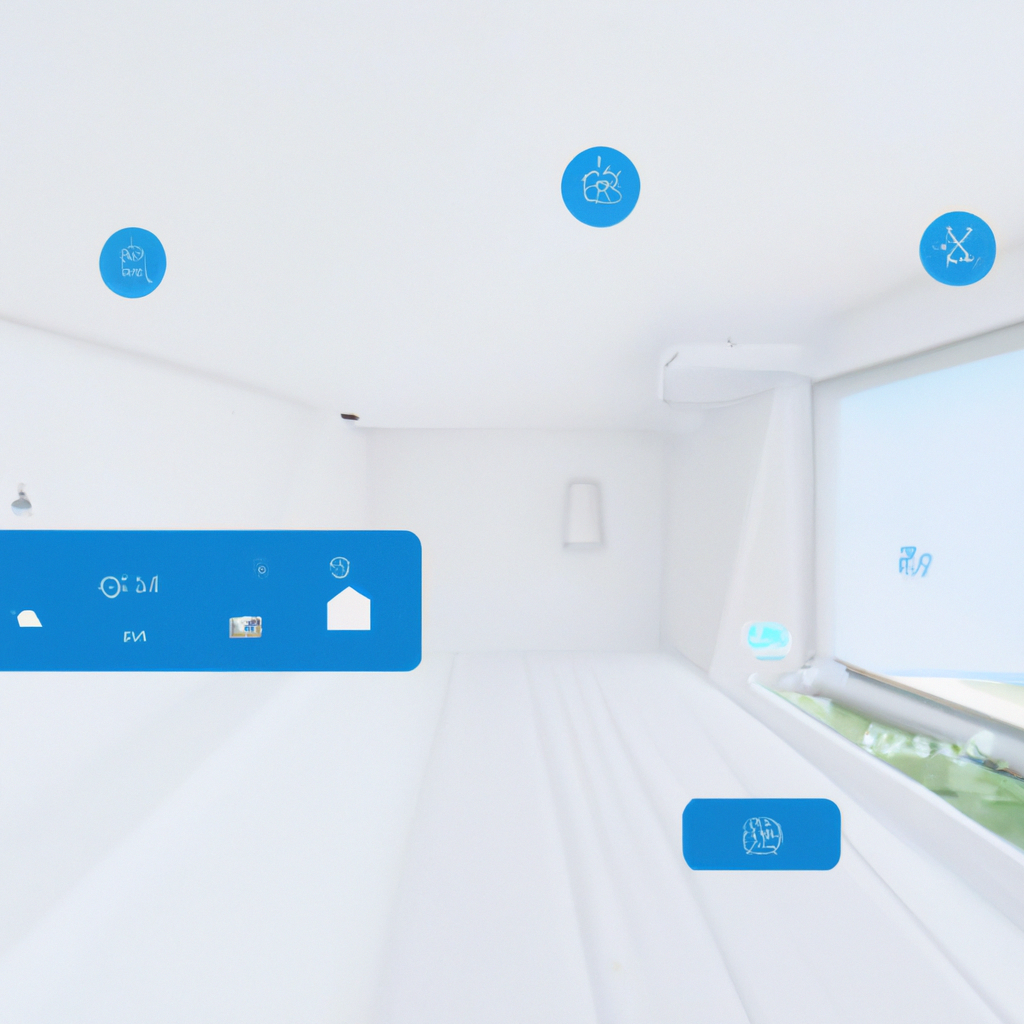Smart home automation has been gaining popularity over the years, with more homeowners seeking innovative ways to make their homes more comfortable, convenient, and energy-efficient. Smart home automation refers to the integration of home automation technology into homes to control various functions automatically. These functions may include lighting, temperature, security, and entertainment systems. With connected home solutions and IoT devices for smart homes, homeowners can control every aspect of their homes from their smartphones, tablets, or computers. In this article, we will explore the principles of smart home automation, the benefits of smart home automation, smart home security systems, automated home appliances, smart home control systems, home automation industry trends, and more.
Principles of Smart Home Automation
There are several principles of smart home automation that homeowners should consider before installing any smart home devices. These principles include:
1. Compatibility: Before purchasing any smart home device, ensure that it is compatible with your existing devices. Compatibility ensures seamless integration and smooth operation of all devices.
2. Scalability: Smart home automation systems should be scalable, meaning they can be expanded or reduced based on the homeowner’s needs. As your needs change, you can add new devices or remove old ones.
3. Reliability: Smart home automation devices should be reliable and perform their functions consistently. A reliable system ensures that your home is always comfortable, secure, and energy-efficient.
4. Security: Smart home automation devices should be secure to prevent unauthorized access to your home. Devices should be secured by encryption, passwords, and biometric authentication.
5. Ease of Use: Smart home automation devices should be user-friendly, with simple interfaces that are easy to navigate. Ease of use ensures that homeowners can operate their devices without any technical knowledge.
Benefits of Smart Home Automation
Smart home automation offers several benefits to homeowners. Some of these benefits include:
1. Increased Comfort: Smart home devices allow homeowners to control their home’s temperature, lighting, and entertainment systems from their smartphones or tablets, providing increased comfort and convenience.
2. Energy Efficiency: Smart home devices can help homeowners reduce their energy bills by automatically adjusting thermostats, turning off lights, and unplugging appliances when not in use.
3. Improved Security: Smart home security systems provide homeowners with real-time alerts and remote access to their home’s security cameras, door locks, and alarm systems, increasing their security and peace of mind.
4. Automated Home Appliances: Smart home appliances such as refrigerators, washing machines, and ovens can be programmed to operate automatically, saving homeowners time and effort.
Smart Home Security Systems
Smart home security systems are an essential aspect of smart home automation. These systems incorporate various devices such as cameras, door locks, and alarm systems to provide homeowners with real-time alerts and remote access to their homes. Some of the features of smart home security systems include:
1. Video Cameras: Smart home security systems incorporate video cameras that provide homeowners with real-time video feeds of their homes. Some cameras are equipped with motion sensors that trigger real-time alerts when motion is detected.
2. Door Locks: Smart home security systems incorporate door locks that can be locked or unlocked remotely using a smartphone or tablet. Some door locks are equipped with biometric authentication systems such as fingerprint scanners.
3. Alarm Systems: Smart home security systems incorporate alarm systems that can be triggered remotely using a smartphone or tablet. Some alarm systems are equipped with motion sensors that trigger real-time alerts when motion is detected.
Smart Home Control Systems
Smart home control systems allow homeowners to control their home’s temperature, lighting, and entertainment systems using a smartphone or tablet. These systems incorporate various devices such as thermostats, lighting controls, and entertainment systems to provide homeowners with complete control over their homes. Some of the features of smart home control systems include:
1. Temperature Control: Smart home control systems incorporate thermostats that can be controlled remotely using a smartphone or tablet. Homeowners can adjust the temperature of their homes from anywhere.
2. Lighting Control: Smart home control systems incorporate lighting controls that allow homeowners to turn lights on or off remotely using a smartphone or tablet. Some lighting controls are equipped with sensors that adjust lighting based on the homeowner’s preferences.
3. Entertainment Systems: Smart home control systems incorporate entertainment systems such as home theaters and sound systems that can be controlled remotely using a smartphone or tablet. Homeowners can watch movies, listen to music, and play games from anywhere.
Home Automation Industry Trends
The home automation industry is constantly evolving, with new devices and technologies being introduced every day. Some of the trends in the home automation industry include:
1. Voice Control: Smart home devices such as Amazon Echo and Google Home are equipped with voice control systems that allow homeowners to control their homes using voice commands.
2. Artificial Intelligence: Smart home devices are incorporating artificial intelligence to provide homeowners with personalized experiences. AI systems can learn homeowner preferences and adjust devices accordingly.
3. Energy Efficiency: Smart home devices are becoming more energy-efficient, with devices such as smart thermostats, smart lighting, and smart appliances reducing energy consumption.
Conclusion
Smart home automation offers homeowners increased comfort, convenience, and energy efficiency. With smart home security systems, automated home appliances, and smart home control systems, homeowners can control every aspect of their homes from their smartphones or tablets. The principles of smart home automation include compatibility, scalability, reliability, security, and ease of use. The home automation industry is constantly evolving, with new devices and technologies being introduced every day. As the industry continues to grow, homeowners can expect even more innovative devices and technologies that will further enhance their smart homes.







